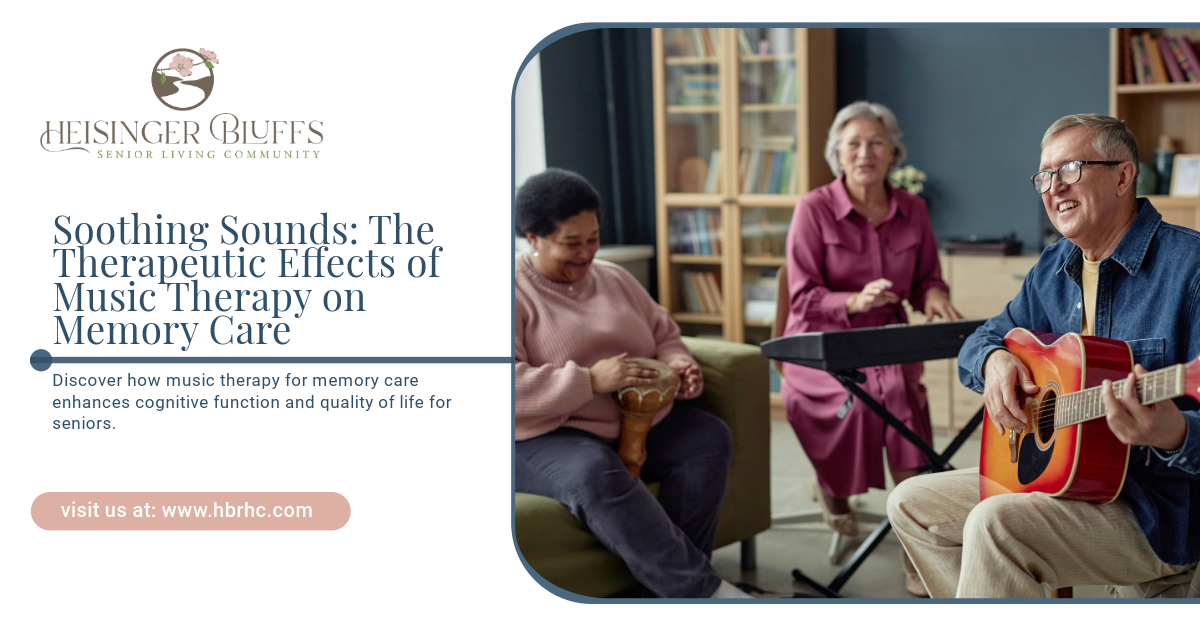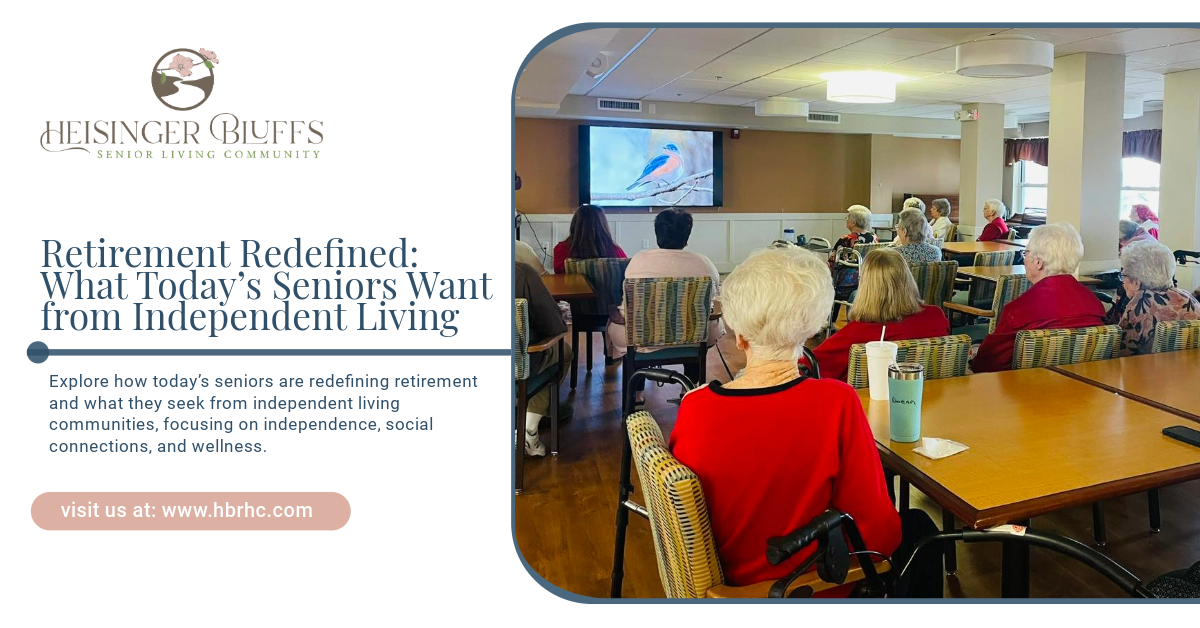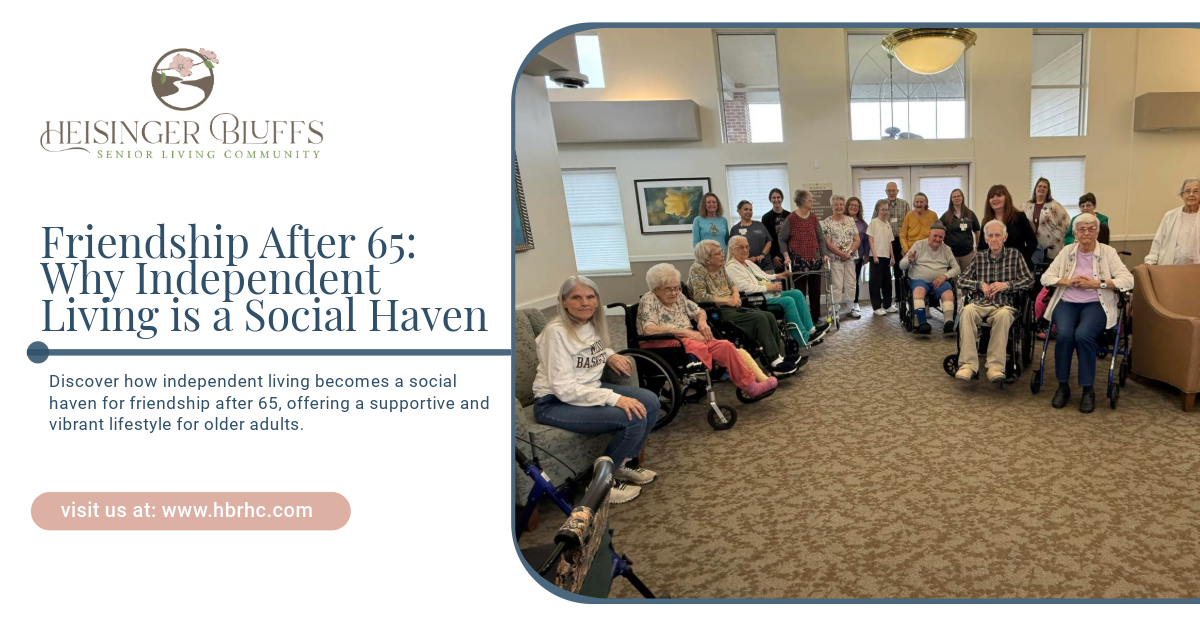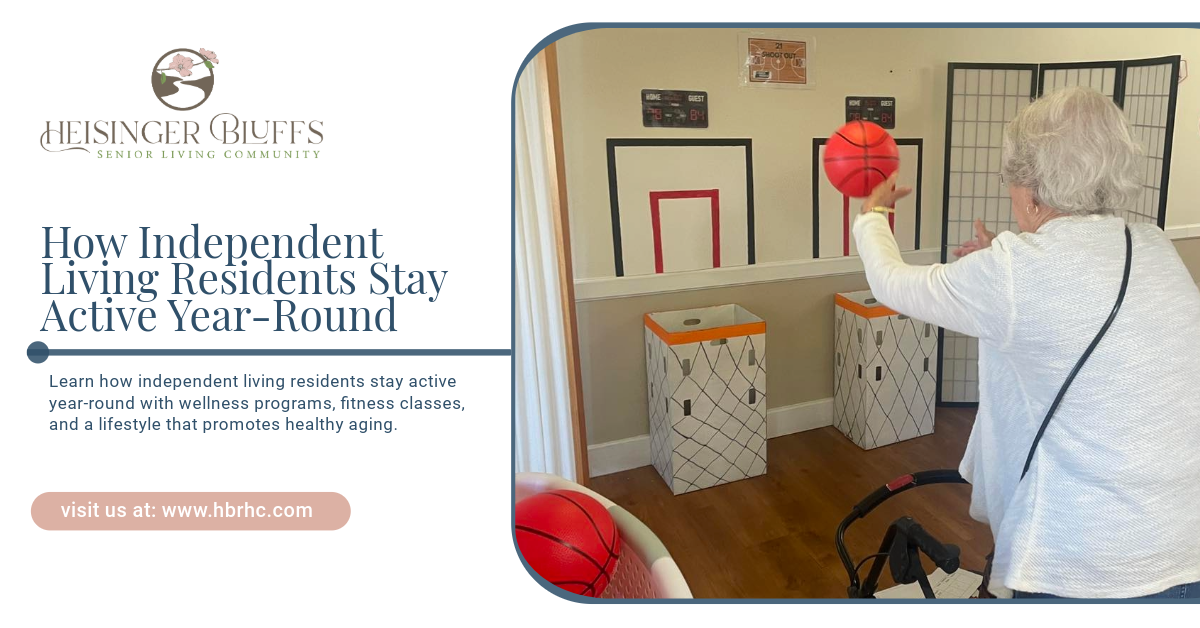Get in touch
Soothing Sounds: The Therapeutic Effects of Music Therapy on Memory Care

Music Therapy for Memory Care
Definition and Benefits
Music therapy is defined as the clinical and evidence-based use of music interventions by a credentialed professional who has completed an approved music therapy program. This approach aims to accomplish individualized goals within a therapeutic relationship.
Research indicates that music therapy can significantly improve cognitive function in individuals living with dementia. It has been shown to enhance not only cognitive abilities, such as memory and speech but also the overall quality of life for participants. Additionally, studies highlight that listening to music yields the most positive effects on cognitive function compared to other interventions like singing or playing instruments.
The following table outlines some key benefits of music therapy for memory care:
| Benefit | Description |
|---|---|
| Cognitive Improvement | Enhances memory, language, and orientation skills. |
| Emotional Well-being | Reduces feelings of depression and enhances mood. |
| Social Engagement | Encourages interaction among participants, improving social skills. |
| Non-Pharmacological Treatment | Serves as an alternative to medication for managing symptoms. |
Impact on Quality of Life
The impact of music therapy extends beyond cognitive enhancements. It has been shown to improve the quality of life for elderly individuals with dementia, creating a positive environment that fosters emotional stability.
Music therapy activates the limbic system, subcortical circuits, and other emotionally related systems, inducing feelings of well-being. By enhancing cerebral plasticity and stimulating neuroplastic alterations, music therapy provides individuals with dementia a sense of renewed identity and engagement.
Through personalized music playlists tailored to individual preferences, therapeutic sessions can lead to further enhancements in mood and attitude for those affected by dementia. For more on memory care programs, explore our article on memory care programs for seniors.
Ultimately, the integration of music therapy into memory care represents a compassionate, effective method to address the complex needs of seniors with memory challenges, allowing for a more fulfilling and connected life experience.
Types of Music Interventions
Music therapy offers various interventions tailored to the needs of individuals in memory care. These interventions can be broadly categorized into listening versus singing, and playing instruments. Each type plays a unique role in enhancing cognitive function and emotional well-being.
Listening vs. Singing
Listening and singing are two primary forms of music interventions beneficial for memory care. Studies show that listening to music has the greatest positive effect on cognitive function in individuals living with dementia, followed closely by singing and playing instruments.
Listening
Listening to familiar music not only helps maintain cognitive function but also improves emotional well-being in seniors with dementia. Passive listening can evoke memories and reduce feelings of anxiety.
| Benefits of Listening to Music |
|---|
| Improves mood |
| Reduces anxiety |
| Enhances overall cognitive function |
Singing
Singing engages different areas of the brain that can improve articulation, rhythm, and breath control. This active form of music therapy encourages social interaction, reminiscence, and can be linked to improved emotional states.
| Benefits of Singing |
|---|
| Enhances verbal fluency |
| Promotes social skills |
| Encourages discussions and reminiscence |
Playing Instruments
Playing instruments provides another active form of music therapy that can positively impact emotional states and global cognitive function. This intervention stimulates various cognitive skills, helping with memory, language orientation, and overall engagement.
Instrumental music therapy can also encourage physical movement, coordination, and fine motor skills, which are beneficial in a memory care setting.
| Benefits of Playing Instruments |
|---|
| Improves cognitive skills |
| Encourages physical movement |
| Enhances fine motor skills |
Both listening and singing, along with playing instruments, contribute to a holistic approach in music therapy for memory care residents. By integrating these interventions into daily routines, families and caregivers can help improve the quality of life for seniors with memory challenges. For more activities, explore our section on memory care activities for seniors.
Effectiveness of Music Therapy
Music therapy for memory care offers numerous benefits, particularly in enhancing cognitive function and improving emotional well-being. This therapeutic approach plays a crucial role in supporting individuals facing memory challenges.
Cognitive Function Improvement
Research indicates that music therapy significantly improves cognitive abilities in people living with dementia. A study highlighted that passive interventions, such as listening to music, have shown to provide the greatest positive effect on cognitive function, followed by singing and playing instruments. Notably, shorter intervention periods of less than 20 weeks have been associated with more substantial cognitive enhancements.
| Intervention Type | Impact on Cognitive Function |
|---|---|
| Listening to Music | Greatest positive effect |
| Singing | Secondary improvement |
| Playing Instruments | Additional cognitive benefits |
Evidence from multiple studies indicates that music therapy interventions facilitate improvements in memory, language skills, and orientation among individuals with Alzheimer's disease. Active participation through singing and rhythmic activities not only enhances general cognitive function but also specifically boosts verbal fluency and memory retention.
Emotional State Enhancement
Music not only affects cognitive function but also significantly enhances the emotional state of individuals in memory care. Studies show that listening to music helps maintain cognitive function while contributing to improved emotional well-being. This is particularly important for senior citizens dealing with conditions like dementia, where emotional stability can fluctuate.
| Music Therapy Effect | Emotional State Improvement |
|---|---|
| Passive Listening | Maintained cognitive function, enhanced mood |
| Active Participation | Increased engagement, reduced feelings of isolation |
The use of music therapy in Alzheimer's patients has been linked to reducing depression and anxiety, thereby promoting a sense of calm and happiness. This emotional improvement is vital for enhancing the quality of life of residents within memory care programs.
Overall, the integration of music therapy into memory care interventions reveals a significant potential for supporting cognitive function and emotional health. For more information on alternative therapies, explore our sections on memory care activities for seniors, art therapy for seniors with dementia, and using art to improve memory.
Music Therapy Techniques
Implementing effective music therapy techniques is vital for enhancing the therapeutic effects on memory care. This section explores structured sessions and the distinctions between active and passive interventions.
Structured Sessions
Structured music therapy sessions are designed to provide a consistent framework in which participants can engage with music. These sessions often have defined goals and can include specific activities such as singing, playing instruments, or listening to music. During these organized sessions, caregivers and therapists create a conducive environment for participants, focusing on enhancing cognitive functions and emotional well-being.
Research highlights that shorter music intervention periods—those lasting less than 20 weeks—show greater effectiveness in cognitive improvement, particularly with passive interventions like listening to music. These structured sessions can also facilitate social interaction, fostering a sense of community among participants.
| Type of Session | Description | Goals |
|---|---|---|
| Active Music Therapy | Involves singing, playing instruments | Enhance verbal fluency, orientation, memory |
| Passive Music Therapy | Involves listening to music | Maintain cognitive function, improve emotional well-being |
Active vs. Passive Interventions
Music therapy can be categorized into active and passive interventions. Each type has its unique benefits and applications in memory care.
Active Music Therapy
Active music therapy (AMI) involves direct participation in musical activities, including singing and rhythmic activities. Research indicates that AMI leads to improved cognition, specifically enhancing verbal fluency, orientation, and memory retention (NCBI). The engagement required by active participation allows patients to connect more deeply with the music and the therapeutic process, resulting in higher motivation and enjoyment.
Passive Music Therapy
Passive music therapy (Receptive Music Intervention, or RMI) involves listening to pre-recorded music or live performances. This method has been shown to help maintain cognitive function and improve emotional well-being among Alzheimer's patients (NCBI). While passive interventions may not engage participants as actively as AMI, they provide significant therapeutic benefits and can be particularly effective for individuals who may struggle with more interactive forms of therapy.
In conclusion, both structured sessions and the differentiation between active and passive interventions play crucial roles in the effectiveness of music therapy for memory care. Choosing the appropriate method can enhance the overall experience and outcomes for seniors receiving care. For more activities beneficial to memory care, visit our section on memory care activities for seniors.
Personalized Music Approach
Individualized Playlists
Individualized music playlists play a crucial role in music therapy for memory care. These playlists are tailored to the specific preferences of each patient, selecting songs that resonate with their personal history and emotional experiences. Research indicates that such personalized interventions can lead to notable improvements in cognitive functions, particularly memory. By engaging with music that is meaningful to them, individuals with dementia may stimulate cognitive processes associated with memories and emotions.
| Element | Description |
|---|---|
| Customization | Playlists created based on individual tastes and preferences |
| Cognitive Benefits | Improvement in memory and cognitive function |
| Emotional Response | Increased emotional engagement and reminiscence |
Benefits of Personalization
Personalization in music therapy not only boosts cognitive functions but also enhances emotional well-being. Studies have shown that personalized music can improve attitude and mood in individuals with dementia. Additionally, personalized interventions address behavioral and psychological symptoms, such as agitation, irritability, and depression, which are common among dementia patients.
The ability of music to serve as an alternative communication channel is particularly valuable for individuals who struggle with verbal communication. This therapeutic approach can facilitate connections and foster a sense of belonging, benefiting both the individual and their caregivers.
In summary, incorporating individualized music playlists in memory care not only supports cognitive improvement but also promotes emotional stability, making it an essential element of comprehensive memory care programs for seniors. By understanding the unique needs of each patient, therapeutic professionals can create interventions that are significantly more effective and meaningful. For more engaging activities, explore our section on memory care activities for seniors.
Role of Music in Dementia Care
Music plays a significant role in dementia care, providing therapeutic benefits that enhance the quality of life for both individuals with dementia and their caregivers.
Social Engagement Enhancement
Music therapy for memory care fosters social interaction among individuals with dementia and their caregivers. A study published in Alzheimer Disease and Associated Disorders found that specific forms of music therapy significantly improved social engagement and decreased caregiver distress. Participants demonstrated enhanced nonverbal sociable behaviors, such as increased eye contact, interest, focus, and calmness compared to control groups.
The indications that music therapy creates an interactive platform where communication can thrive are promising. It allows for reminiscence and discussion, which strengthens connections between individuals with dementia and their loved ones, promoting emotional well-being.
| Social Behaviors | Intervention Group | Control Group |
|---|---|---|
| Eye contact | Improved | Limited |
| Interest | High | Low |
| Focus | Enhanced | Minimal |
| Calmness | Notable | Reduced |
This enhancement in social engagement contributes to a better quality of relationships and an overall sense of well-being.
Caregiver Stress Reduction
In addition to aiding social engagement, music therapy also alleviates stress levels for caregivers. As mentioned by Dr. Borna Bonakdapour, preliminary data indicates music therapy reduces stress levels among caregivers, helping them connect better with their loved ones. Caregivers reported feeling less burdened and more fulfilled in their caregiving roles.
The therapeutic practices in music therapy, such as singing and listening, allow caregivers to experience moments of shared joy and connection. This shared experience is vital as it fosters a supportive environment, making the caregiving journey more manageable and rewarding.
Music therapy continues to show promise in contributing to emotional stability and enhancing the relationships between caregivers and individuals with dementia. For more resources on enriching care practices, explore our articles on memory care programs for seniors and art therapy for seniors with dementia.
Frequently Asked Questions
What is music therapy and how does it benefit individuals with dementia?
Music therapy is a clinical and evidence-based practice that uses music interventions to achieve personalized therapeutic goals. For individuals with dementia, it enhances cognitive functions like memory and speech, promotes emotional well-being, and encourages social interaction. Research shows that listening to music has the greatest positive impact on cognitive function compared to other interventions like singing or playing instruments.
How does music therapy improve the quality of life for those in memory care?
Music therapy enhances the quality of life by fostering emotional stability and social engagement. By activating the brain's limbic and emotionally-related systems, it improves mood, reduces anxiety, and promotes a sense of well-being. Additionally, personalized music playlists tailored to individuals' preferences evoke memories and help those with dementia feel more connected and engaged.
What types of music interventions are used in memory care?
Music interventions in memory care include listening to music, singing, and playing instruments. Listening to music is known for maintaining cognitive function and improving mood, while singing boosts verbal fluency and social interaction. Playing instruments engages various cognitive skills and encourages physical movement and motor coordination, contributing to both cognitive and emotional improvements.



Want to know more?
We will get back to you as soon as possible.
Please try again later.
You May Also Like To Read
Heisinger Bluff’s Life Plan Community is here to make your senior years safe, stimulating and enjoyable so that you can savor the present, knowing the future will be taken care of.
QUICK LINKS
CONTACT
©2024. Heisinger Bluffs. All rights reserved.








